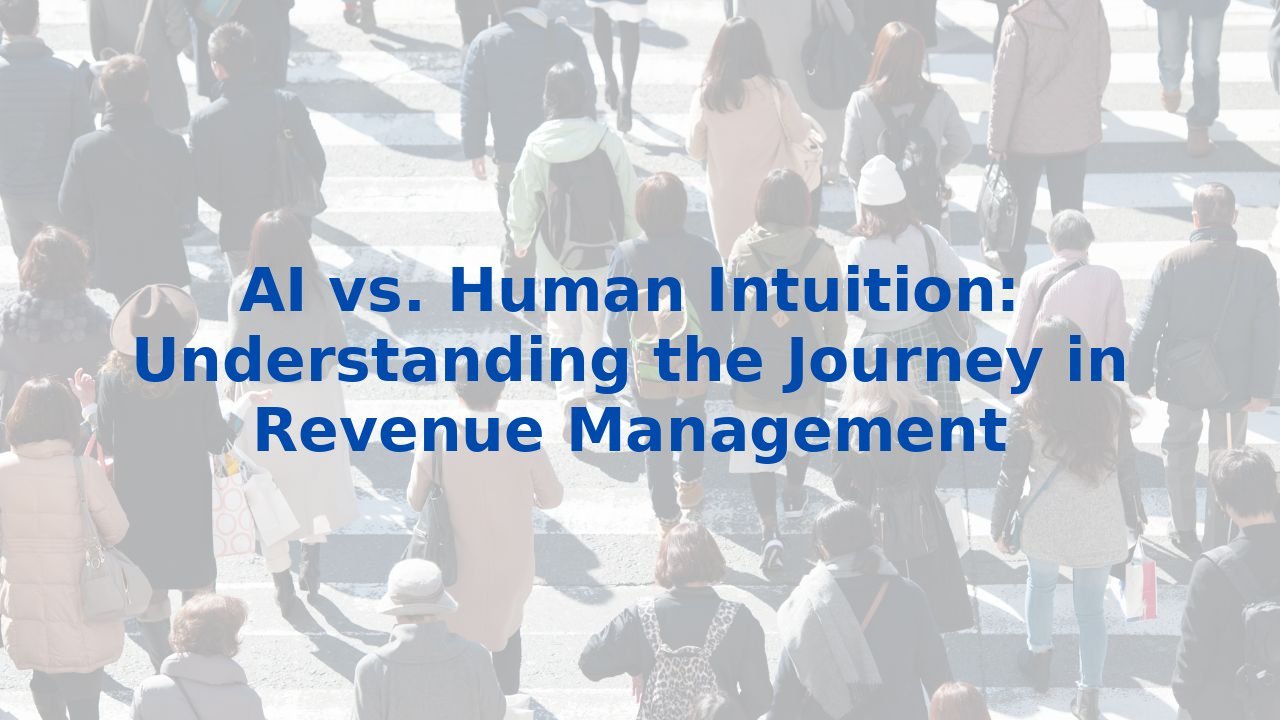AI vs. Human Intuition: Understanding the Journey in Revenue Management
AI vs. Human Intuition: Understanding the Journey in Revenue Management
The business landscape is rapidly evolving, driven by advancements in artificial intelligence (AI). As organizations strive to enhance their operational efficiency and profitability, the convergence of AI and human intuition presents a unique opportunity, especially in revenue management. This post will explore how AI can seamlessly integrate into business processes, improving decision-making and operational effectiveness.
Enhancing Efficiency in Revenue Management
Revenue management, particularly in industries such as hospitality, hinges on understanding guest behavior to optimize pricing strategies. Traditionally, human intuition played a pivotal role in this delicate balance, ensuring that the experience of a guest is not overlooked. However, with the introduction of AI, businesses now have the ability to analyze vast data pools encompassing customer preferences, market trends, and booking patterns.
With AI's analytical prowess, hotels can predict when guests are most likely to book, enabling them to tailor offers that resonate with consumer behavior. Instead of relying solely on instinct, decision-makers can merge the insights provided by AI with their own understanding of the guest journey, ultimately maximizing revenue and enhancing guest experience.
How AI Enhances Business Processes
The integration of AI into business processes is transforming the way organizations operate. Here are a few areas where AI excels:
- Data Analysis and Visualization: AI's ability to transform complex data into digestible visual insights empowers teams to make informed decisions efficiently. Imagine an organization simplifying its shipping routes or pinpointing the optimal time to launch a product—all achievable through robust data visualization.
- Predictive Analytics: With AI algorithms, businesses can forecast consumer behavior patterns, allowing for timely interventions to reduce churn. In the hospitality sector, this could mean identifying when a potential guest is likely to book and personalizing offers, driving both satisfaction and revenue.
- Automating Repetitive Tasks: AI shuns the monotony of repetitive tasks, automating processes like customer inquiries and inventory management. This transition not only enhances productivity but also lets employees focus on strategic initiatives that foster business growth.
- Streamlining Operations: AI identifies inefficiencies, leading organizations to tighten operations and cut costs. Think about a manufacturing plant that uses AI to eliminate defects seamlessly—time and resources consumed in correction are vastly decreased, showcasing AI's operational benefits.
- Enhancing Customer Service: AI-driven chatbots enable businesses to provide round-the-clock support, addressing customer queries with speed and efficiency. By taking care of routine inquiries, human employees can devote their skills to more nuanced interactions and relationship building.
The Benefits of Training Employees for AI
While AI drives remarkable efficiencies, companies must invest in their employees to harness its full potential. Training employees in AI not only enhances their skill sets but also prepares them for an evolving workplace. Here’s how employee training can make a difference:
- Upskilling Workforce: As employees learn to work alongside AI tools, they improve their operational efficiency, developing competencies that make them valuable assets. An upskilled workforce is not just productive; it remains relevant in a tech-driven environment.
- Critical Evaluation: AI provides insights, but these need to be assessed critically. Employees trained in AI can evaluate data with a discerning eye, meld insights with human intuition, and ensure holistic decision-making.
- Job Adaptation: AI’s role in automating tasks may lead to reframed job descriptions rather than eliminations. Thus, training ensures employees are equipped to adapt to their evolving roles, remaining integral to organizational success.
Conclusion
The interplay between AI and human intuition is reshaping revenue management and business processes across industries. Embracing AI's capabilities in data analysis, predictive analytics, automation, and operational optimization offers organizations a clear pathway to bolster their efficiency and profitability. However, the value of investing in training cannot be overstated. By cultivating a workforce that is skilled and adaptable, businesses position themselves for sustainable success in an ever-evolving market.
As organizations look toward the future, they can embrace a collaborative model where technology and human insight unite, driving innovation and unlocking new avenues for growth.



